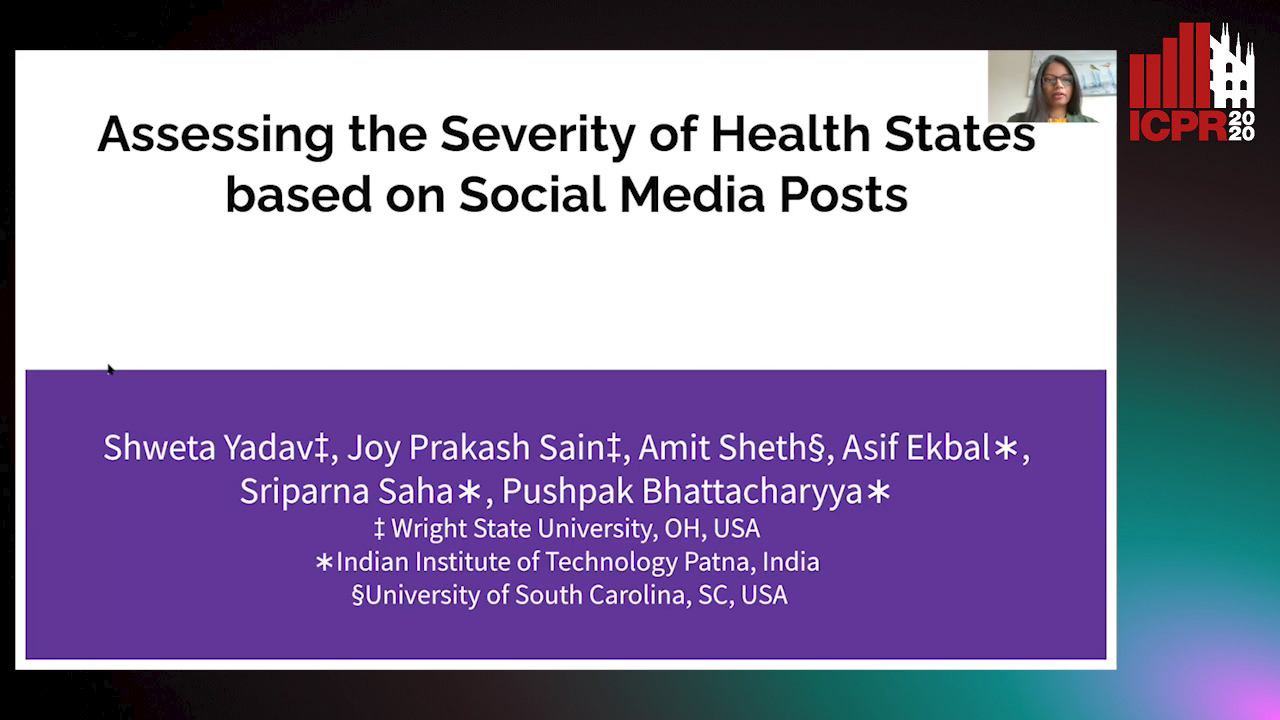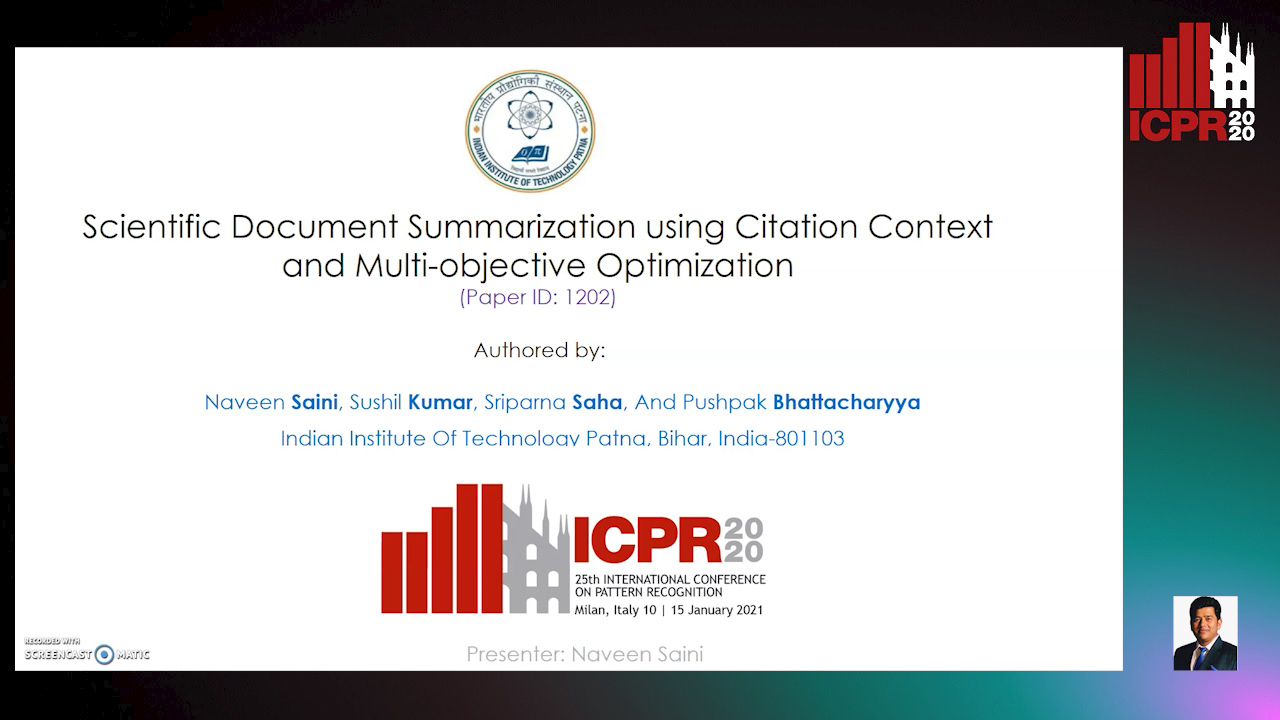Pushpak Bhattacharyya
Papers from this author
Assessing the Severity of Health States Based on Social Media Posts
Shweta Yadav, Joy Prakash Sain, Amit Sheth, Asif Ekbal, Sriparna Saha, Pushpak Bhattacharyya

Auto-TLDR; A Multiview Learning Framework for Assessment of Health State in Online Health Communities
Abstract Slides Poster Similar
Scientific Document Summarization using Citation Context and Multi-objective Optimization
Naveen Saini, Sushil Kumar, Sriparna Saha, Pushpak Bhattacharyya

Auto-TLDR; SciSumm Summarization using Multi-Objective Optimization
Abstract Slides Poster Similar